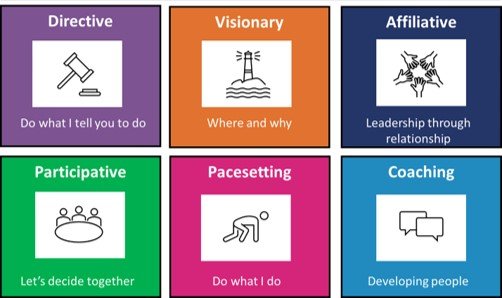Assessments
Feedback has been called a leadership superfood. Assessment tools provide powerful feedback that fuels growth. The Talent Advisor offers 8 primary assessment tools, most often used as part of: (1) leadership development, (2) succession planning, (3) talent dashboards, (4) coaching engagements, (5) annual performance reviews, or (5) as a culture / organizational diagnostic. These tools have been deployed 300-500 times per year for over 20 years. Even the iconic management consultant Ken Blanchard (authored over 60 books) called feedback, “The breakfast of champions.” See below for a brief overview of each tool and a sample report.
Name: Leadership Accelerators, Derailers, & Paradoxes (LADP)
Format: Self-assessment
Time: 30 min
Questions: 115 + 2 open ended
Target Audience: Emerging, new, existing leaders
Development Tips: 100 tips embedded in the report
Uses: selection, development, coaching, succession, evaluation
Benchmarks: Yes embedded in the report
Description: Based on global research, this tool measures 6 clusters containing 20 leadership accelerators, 5 leadership derailers, and 12 leadership paradoxes. Essential for leaders!
View LADP Sample ReportSummary of Assessment Tools…
Name: The Leadership Competency Portfolio (LCP)
Format: Self-assessment or 360 feedback
Time: 20 min
Questions: 55 + 2 open ended
Target Audience: Emerging, new, existing leaders
Development Tips: 55 tips embedded in the report
Uses: development, coaching, succession, evaluation
Benchmarks: Yes embedded in the report
Description: Based on 20 years of research the LCP contains 4 clusters (Leading Yourself, Leading Your Team, Leading The Work, Leading Collaboratively) and 11 competencies essential for leadership success
View LCP Sample ReportName: The 6 Leadership Styles
Format: Self-assessment or 360 feedback
Time: 20 min
Questions: 48
Development Tips: 60 tips per style embedded in the report
Uses: development, coaching, succession, evaluation
Benchmarks: Yes embedded in the report
Description: Find out how you spread energy across the 6 Leadership Styles (Directive, Visionary, Affiliative, Participative, Pacesetting, Coaching). Most leaders think they use 4-5 styles but most leaders actually use 1. World class leaders use 4+ styles. What’s your mix?
View The 6 Leadership Styles Sample ReportName: Motivation
Format: Self-assessment
Time: 15 min
Questions: 30
Development Tips: 20 tips embedded in the report
Uses: development, coaching, succession, evaluation
Benchmarks: Yes embedded in the report
Description: The 3 primary motives for people are achievement, affiliation, ad power. All are important for leaders in balance but of course most people are much stronger on 1-2 of the motives. Dr. David McClelland was a Harvard professor and one of the most cited psychologists of all time. His two legacies are workplace competencies, and motivation.
View Motivation Sample ReportName: Leader as Coach
Format: Self-assessment
Time: 15 min
Questions: 40 + 2 open ended
Development Tips: no
Uses: development, coaching, succession, evaluation
Benchmarks: Yes embedded in the report
Description: Leader as Coaching looks at the 4 dimensions of coaching: (1) Coaching Preparation, (2) Coaching Conversation, (3) Coaching Follow-up, and (4) Coaching Qualities & Beliefs. The tool is best used as either (a) pre-work for a workshop on coaching & feedback for leaders or (b) as follow-up after a workshop to reinforce the learning and keep the workshop concepts alive in the months following the workshop itself.
View Leader as Coach Sample ReportName: Business Development & Sales
Format: Self-assessment
Time: 15 min
Questions: 40 + 2 open ended
Development Tips: yes
Uses: development, coaching, succession, evaluation
Benchmarks: Yes embedded in the report
Description: This tool measures (1) how you perform against the 9 stages of the business development and sales cycle as well as (2) whether you are more of a hunter vs farmer. It has been used in global management consulting firms, engineering firms, pharmaceutical sales, law firms, IT consulting firms, and with the executive education department of several universities.
View Business Development & Sales Sample ReportName: Emotional Intelligence
Format: Self-assessment
Time: 20 min
Questions: 40 + 2 open ended
Development Tips: no
Uses: development, coaching, succession, evaluation
Benchmarks: Yes embedded in the report
Description: This tool measures your EI based on the 4 established quadrants (1) self-awareness, (2) self-management, (3) social awareness, and (4) relationship management. It also provides an overall EI score.
View Emotional Intelligence (EI) Sample ReportName: Change Quotient
Format: Self-assessment
Time: 20 min
Questions: 40 + 2 open ended
Development Tips: no
Uses: development, coaching, succession, evaluation
Benchmarks: Yes embedded in the report
Description: How do you like your change? This tool measures your Change Quotient based on 4 zones (1) stuck, (2) incremental, (3) adaptive, and (4) transformational. It also provides an overall Change Quotient score.
View Change Quotient Sample ReportName: Myers-Briggs Type Indicator (MBTI)
Format: Self-assessment
Time: 20 min
Questions: 60 + 2 open ended
Development Tips: no
Uses: development, coaching, team building
Benchmarks: No
Description: The MBTI is the most widely used personality inventory in the world. It has 60 years of history, translated into 33 languages, and the subject of over 1,800 books/studies/articles. It identifies personality preferences on 4 scales: (1) Extraversion-Introversion, (2) Sensing-Intuition, (3) Thinking-Feeling, (4) Judging-Perceiving. Generally used as part of workshop. Highly interactive, very insightful, and always impactful.
View MBTI Sample ReportName: LPI360 (Leadership Practices Inventory) 360 Feedback
Format: 360 feedback
Time: 20 min
Questions: 30 + 2 open ended
Development Tips: no
Uses: development
Benchmarks: Yes embedded in the report
Description: Created by Jim Kouzes and Barry Posner, the LPI360 asks 30 behavioural questions that load onto the 5 practices leader exemplify. (1) model the way, (2) inspire a shared vision, (3) challenge the process (4) enable others to act, (5) encourage the heart
View LPI360 Sample Report










